Elections ahead
With Poland gearing up for -- count them -- three different votes this year (Parliamentary, Presidential, EU Constitution), probably all this fall, it's time to take a look at the political situation before the real campaigning begins. For an excellent summary, check out The Economist's last country report on Poland.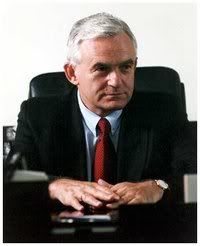
As regular WS readers know, the Democratic Left Alliance (SLD), a group of former communist party officials and socialists, has more or less self-destructed over several high-profile scandals and 2002-2003's economic stagnation that led to Prime Minister Leszek ("LEH-shek") Miller's resignation last year. After gaining 41% in 2001's Parliamentary elections, the party is now only holding together because it's still in power.
But just barely. Since Miller's resignation the day after Poland's entry into the EU last May, the SLD has effectively split in two, with Marek Borowski ("MA-rek" "bor-OV-ski") leading some of the unsullied members into a new party, named Polish Social-Democracy (SdPl). He failed however, to land some of the biggest names in the party -- such as President Aleksander Kwaśniewski, new Prime Minister Marek Belka, and Economy Minister Jerzy Hausner. These three are moderate when it comes to fiscal policy: Mr Hausner's plan to reform public finances was ambitious, and aimed to cut some zł. 54 ($17.8) billion -- mostly from bloated state pension funds.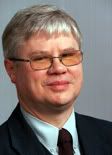 And it now seems that yet another party, the Democratic (yes) Party (PD), is where they will land. This group has been founded by the leader of the Freedom Union (UW), Władysław Forsiniuk, and already looks to be SLD's successor on the left. It has a strong 6-12% (depending on the poll) level of support if the election were held today. They're attracting moderates: their gain has come at the cost of Citizen's Platform (PO -- the center-right majority in waiting), which now has only 22% support, down from 28%.
And it now seems that yet another party, the Democratic (yes) Party (PD), is where they will land. This group has been founded by the leader of the Freedom Union (UW), Władysław Forsiniuk, and already looks to be SLD's successor on the left. It has a strong 6-12% (depending on the poll) level of support if the election were held today. They're attracting moderates: their gain has come at the cost of Citizen's Platform (PO -- the center-right majority in waiting), which now has only 22% support, down from 28%. 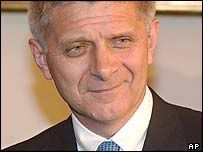
Hausner has already joined the party, and Belka is too, as of Saturday. When Hausner submitted his resignation from his dual-post as Deputy Prime Minister/Economy Minister two weeks ago (which Belka still hasn't rejected or accepted), he announced to the press: "This does not mean the end of my cooperation with Marek Belka." Belka has since said that on May 5, his work as PM will be officially at an end -- he will resign. Along with that, he will call for the dissolution of Parliament that day, paving the way for elections by June. However, it looks as if he doesn't have enough support for the proposal within his own party. SLD officials estimate that 20-30 of their delegates may defect and vote for dissolution, but even if that happened on May 5, the earliest elections could be held is late July. To avoid costing the state several million złoty, most parties will by then probably agree to have elections in September, as dictated in the constitution.
A pity. If elections fall in the autumn, it will probably only benefit Self-Defense (SO) and the League of Polish Families (LPR), two extremist parties, the former populist and the latter right-wing. Both are anti-EU, and both have gained up to 17% and 15% of the public's support in recent polls.
Citizen's Platform (PO) will surely win a plurality in the electoins -- the only question is by how much. 25% should be the line at which they're judged. More than that will be deemed a success, less -- a failure; A later election works against them. PO wants to institute a flat VAT (value added tax) and a flat income tax -- they're talking about 15%, but if they manage to pull it off, a more realistic outcome is probably 18-19%.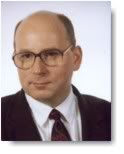
PO is led by a man named Jan Rokita. He is perhaps the least charasmatic, and most frustrating of the bunch. Stubborn, autocratic, and more conservative than most in his party, I'm not looking forward to having him as Prime Minister. Then again, he's much better than Andrzej Lepper ("AHND-jay") ("LEP-per"), leader of SO, or Roman Giertych ("GYER-tikh"), the LPR's man in charge.
That's our overview of the political situation as it stands now, and gives us some idea of what the Parliament will look like. Stay tuned -- next up WS will bring you the details on the Presidential election -- who's in, what their stance is, and what it means for Polish-American relations.




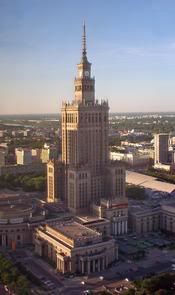









3 Comments:
Election Update
Poland A.M.:
Opposition parties are appealing to Prime Minister Marek Belka to hold a
no-confidence vote in the Sejm in early April. If the vote were to be
carried it would allow parliamentary elections to take place in June. The
vote of no-confidence can be passed with a majority of votes in the Sejm. If
Belka called for a vote it would present an excellent opportunity for the
opposition, as the only parties against such a move are the Democratic Left
Alliance (SLD) and the Labor Union (UP). "We appeal to Marek Belka to turn
with the vote of no-confidence to the Sejm as soon as possible. If he will
not, this will mean he is dishonest like the SLD and wants autumn elec
tions," said Polish Families League's Zygmunt Wrzodak. The head of the Civic
Platform (PO) Jan Rokita on the other hand remains cool and advises to stop
the discussion concerning the date of the elections. "All normal people know
already that neither Aleksander Kwaśniewski nor Marek Belka want early
elections. Only the SLD is brave enough to officially support the autumn
date," said Rokita.
Looks like a bunch of evil white men to me, are there no women or minorities in Poland?
Very few minorities, very few. You can be nearly sure that if you see a tall black man in Poland, odds are he's an American brought in to play for a local basketball team.
And I don't know of any minorities in Parliament, although the Foreign Minister, Adam Rotfeld, is Jewish, and even survived the Holocaust.
As for women, there are a few in Parliament, but none in such a position of power in a party to run for a top spot in the government. One refreshing exception is Danuta Huebner, who is a member of the European Parliament, and an independent.
Kwasniewski's wife was floated for president a year ago, and she even enjoyed the lead in the polls for a while. She quickly dropped out however, when her husband was implicated in one scandal or another.
Post a Comment
< Main